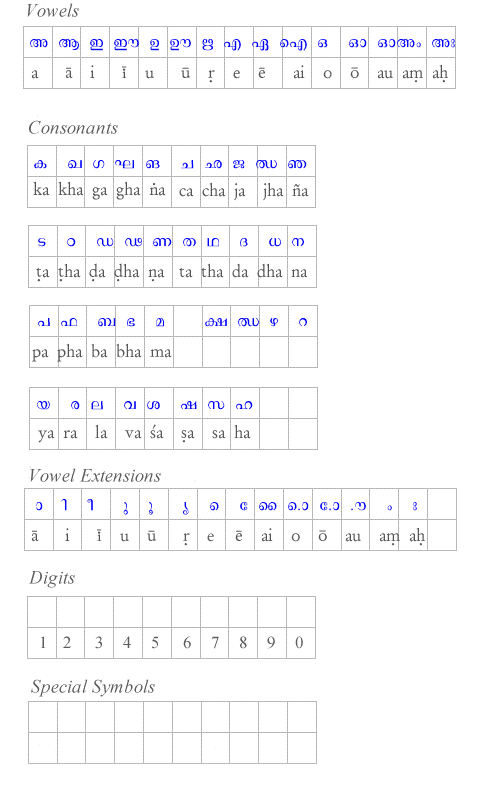This page presents the details of the scripts of the different languages of the country. As seen earlier, the languages of India are phonetic in nature and hence the writing system for any language maps the sounds of the aksharas to specific shapes. The basic set of aksharas for most languages consist of sixteen vowels and about forty consonants. These are shown in the illustration below. For reference, the aksharas are shown along with the equivalent Roman Diacritic representations. The actual rules for forming consonant vowel combinations and conjunct characters vary from script to script.
Additional information about the script is given following the image.
Script shown: Malayalam

Some additional information about the script including the methods adopted in the writing system for the script may be seen below. Aspects of the writing system specific to the script will also be indicated. The reader my benefit from looking at the pages discussing the aspects of writing systems followed for Indian languages for a generic view of syllabic writing systems.
Additional Information on the Malayala ScriptThe Malayalam script has evolved over a period of several hundreds of years. The script seen above has been in vogue for about a hundred years now. Many books printed in India during the second half of the ninteenth century exhibit variations for several samyuktakshars (known as "kootaksharams).
Please use the "Back" button of your browser to return to the previous page
Please follow the links below for details of other scripts.
Devanagari
Tamil
Bengali
Gujarati
Gurmukhi
(Punjabi)
Oriya
Telugu
Kannada
Malayalam
Ancient scripts
Brahmi
Grantha
Related scripts
Sinhala
